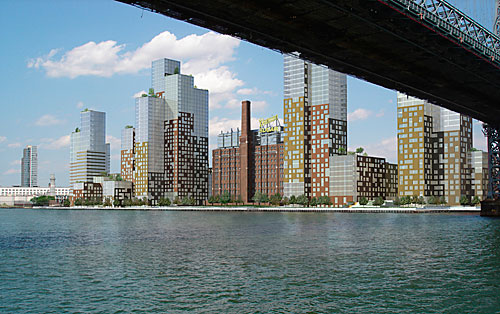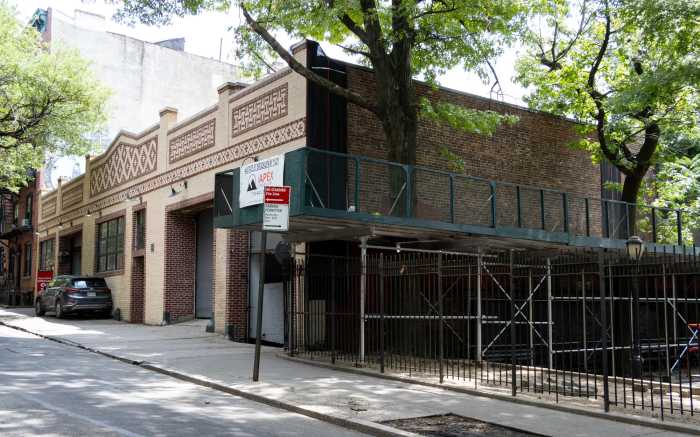Community Preservation Corporation Resources vice president Susan Pollock dismissed reports that her company is trying to unload the Williamsburg plot after an historic rezoning drastically increased its worth, claiming that she wants to refinance the mortgage within the next six months and bring in another developer to help fund the build-out.
Real estate insiders told The Brooklyn Paper earlier this month that Pollock’s company was going to cash out, but the developer insists she’s simply working with commercial brokers to recruit new investors.
“Our strategy is not to sell, our strategy is to enter into a joint venture, bring in a reputable developer, and get to work on the upland parcel across from Kent Avenue soon thereafter,” Pollock said in an interview on Wednesday. “Our interest is seeing the property get developed according to our vision.”
Pollock hopes to find another investor and start construction on the first portion of the project, about 300 below-market-rate units, by the end of 2013. She also wants to renegotiate her company’s mortgage with lender Pacific Coast Capital Project to eliminate nearly $125 million in debt from the property.
But the plan to bring high-rises containing 2,200 units of housing to the Southside waterfront might have hit another snag on March 5, when Community Preservation Corporation’s silent partner, developer Isaac Katan, sued the company in an attempt to prevent the lender from buying up the Domino debt.
Katan’s lawyer accused Community Preservation Corporation of breach of contract, profligate spending to the tune of $25 million in architect and legal fees, and mismanagement, according to a Crain’s New York report.
A judge dismissed Katan’s request for a temporary restraining order, since Katan has almost no rights in the partnership. The next hearing date is scheduled for April 4, and Pollock is confident the judge will dismiss the suit.
“We’ll prevail in the injunction and then we’ll go forward with the development,” she said.
Community Preservation Resources Council and the Katan Group bought the former sugar factory and its adjoining lots eight years ago for $55.8 million, obtaining $65 million in financing from its parent company and another investor, Marathon Structured Finance.
The builders dreamt up an ambitious plan estimated to be worth $1.4 billion when completed, and spent $25 million on architecture, consulting, and legal fees for the development to get through the city’s expensive and arduous rezoning process — efforts that seem to have paid off when the city approved the Domino rezoning plan in August 2010.
The developers took out a $120 million loan in 2007 to pay off their original lenders, but breaking ground on the 11-acre waterfront site has been a challenge and the debt accumulating on the property outweighed what it was actually worth.
Community Preservation Corporation negotiated with its lender to extend its loan one month after the rezoning, and began seeking other investors without Katan’s approval, according to his court filing.
Worried that he was cut out of the deal, Katan recruited several investors to buy out the project — a bid rejected by Community Preservation Corporation. Then the company became mired in internal turmoil, when its board parted ways last November with its longtime CEO Michael Lappin, the visionary of the Domino project, and nearly half its staff.
Less than four months later, Community Preservation Corporation defaulted on its $120 million loan, according to a New York Times report.
Pollock declined to comment on specific investors interested in the Domino site, but said that she is looking for a new partner who is well-financed and experienced with waterfront development and affordable housing.
“We have not abandoned our commitment or our supporters,” she said.
Still, if the company chose to sell the site, insiders say it would be a windfall.
“They’ll make so much money selling it,” commercial real estate broker Chris Havens said last week.
Reach reporter Aaron Short at ashort@cnglocal.com or by calling (718) 260-2547.

























